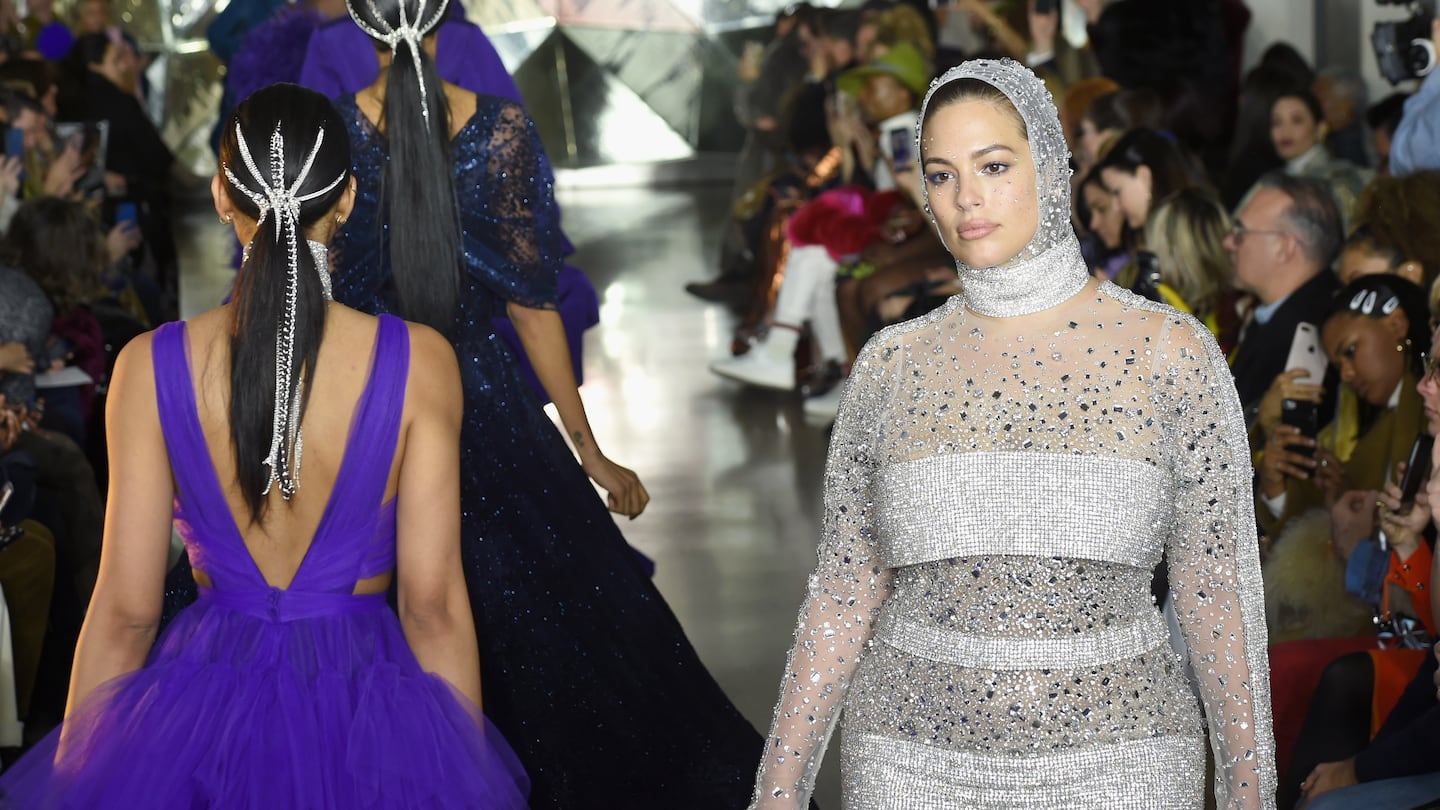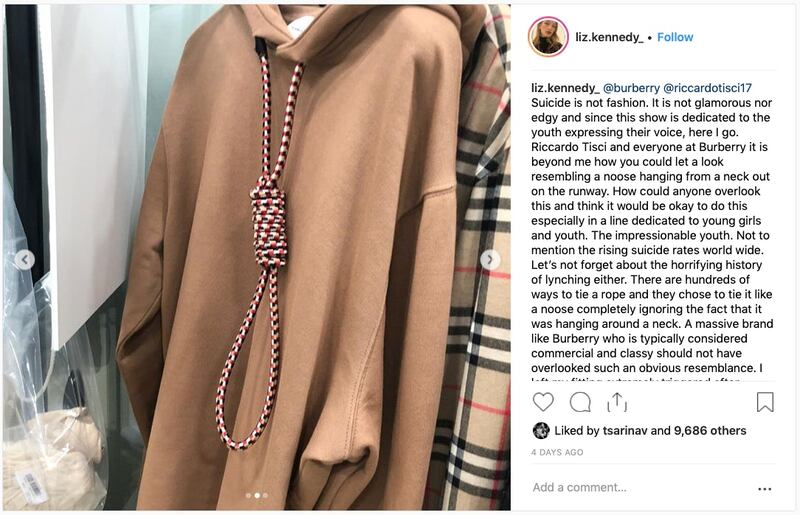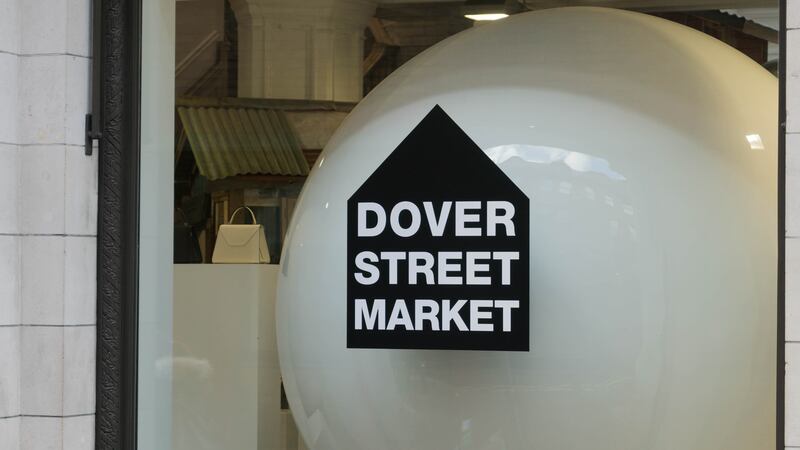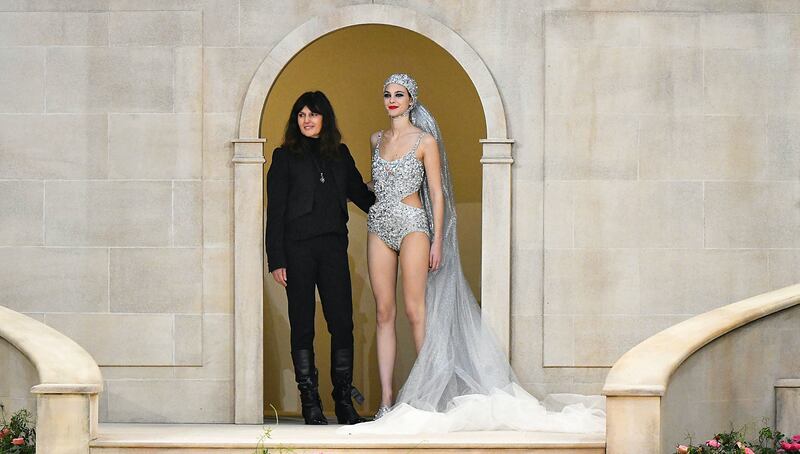
The Business of Fashion
Agenda-setting intelligence, analysis and advice for the global fashion community.

Agenda-setting intelligence, analysis and advice for the global fashion community.

Hello BoF Professionals, your exclusive 'This Week in Fashion' briefing is ready, with members-only analysis on the key topic of the week and a digest of the week's top news.
NEW YORK, United States — It should not come as a surprise that the loudest, most jubilant shows during New York Fashion Week were those that featured plus-sized and non-white models. At Christian Siriano, a gaggle of front-row celebrities — Debra Messing et. al. — audibly marveled as curvy model Chloé Véro walked by wearing a lustrous aluminium-hued suit. Alongside 11 Honoré's size 10-and-above runway, the audience shrieked at the surprise appearance of trans actress Laverne Cox, who led the show's confetti-filled finale in a Zac Posen gown. LaQuan Smith, who sent mostly models of colour down the runway, got his audience out of their seats with the help of a live DJ.
Nine in 10 Gen Z consumers believe that companies have a responsibility to address social issues, according to The State of Fashion 2019 report by BoF and McKinsey, and the majority of this demographic say they are more likely to be loyal to companies that support their values on social and environmental issues. Two-thirds of global consumers today say they would switch, avoid or boycott brands based on their stance on controversial issues. Indeed, just look at the backlash that came in the wake of a number of racism controversies the industry has witnessed in recent months — Burberry's "noose" sweatshirt, Prada's monkey keychains, Gucci's "blackface" balaclava, and Dolce & Gabbana's train wreck in the Chinese market.
Millennials and Gen Z now represent $350 billion of spending power in the US, and by next year, Gen Z alone will account for 40 percent of global consumers. And these generations are already the main growth engine of the luxury goods market, driving 85 percent of luxury expansion in 2017, according to Bain. By 2025, they are expected to account for 45 percent of total luxury goods spending.
ADVERTISEMENT
But the demographic analysis underestimates their influence. A “millennial mindset” is taking hold across the luxury market — and across age groups and geographies — changing the purchasing habits of all generations of consumers. Fashion week may have lost some of its commercial power, but it is still the medium of choice for designers to demonstrate their values, both aesthetically and on social matters.
But the record thus far this season is decidedly mixed. The Autumn 2019 shows in New York marked the most diverse season yet for any major fashion week: nearly 46 percent of the 2,197 models cast in New York shows were non-white, according to the Fashion Spot. That’s up one percentage point from last season, but a huge gain over Spring 2015’s 21 percent. Fully one-third of shows cast at least 50 percent non-white models, and not one featured an all-white cast.
At the same time, the uptick in plus-size and transgendered models seen in recent seasons appears to be receding. The number of models in both categories tumbled, with trans representation at a two-year low.
The takeaway is that the fashion industry has come around to the idea that their customers expect to see diversity in racial representation, but that the same efforts haven’t been extended to women of different sizes, or people who don’t conform to the traditional gender rules at all. Rather, plus-size and transgender representation appear to have been a short-lived runway fad rather than a systemic change of representation and inclusion.
And that’s just in New York. The European catwalks are even further behind. The Fashion Spot’s Spring 2019 diversity report showed that to New York's 45 percent of non-white models, London had 36 percent, Paris 32 percent and Milan in last place with 30 percent. But the biggest difference is in the absence of plus-size models. While this season’s tally is still in the works, only three shows in Europe during Spring 2019 featured a plus-size model.
As for trans and non-binary models, London, Paris and Milan were again dramatically behind New York, which was responsible for more than half of Spring 2019’s 91 castings in this category.
If brands want to be relevant — if they want to be cool — celebrating diversity and being mindful of cultural issues are becoming essential steps to meaningful consumer engagement. Even for those who don’t fall into minority categories, the data show that they care about the representation of others. After all, the designers promoting diversity, inclusion and representation are the ones getting media attention — and the loudest cheers. That’s got to count for something.
THE NEWS IN BRIEF
ADVERTISEMENT
FASHION, BUSINESS AND THE ECONOMY

Source: @liz.kennedy_ Instagram
Following 'noose' hoodie controversy, Burberry announces new diversity and inclusivity initiatives. Following the recent strides that Gucci and Prada have made towards more diversity within their own internal teams, Burberry announced via Instagram that new initiatives will be put into action following the controversy around the "noose" hoodie that was shown as part of creative director Riccardo Tisci's Autumn/Winter 2019 collection during London Fashion Week. (Both Tisci and chief executive Marco Gobbetti have since issued an apology.)
Selfridges will ban exotic skins in 2020. Starting next year, the UK luxury department store chain will ban products like watches, luggage and handbags that are made from python, alligator, crocodile or other exotic animal skins, and will only sell leather derived from agricultural livestock. Selfridges joins a growing number of retailers and brands moving against such products amid a wave of consumer demand for ethical consumption.
Foot Locker is investing $12.5 million in Rockets of Awesome. The sportswear retailer has invested $12.5 million in children's apparel company Rockets of Awesome, following its $100 million investment in sneaker resell platform Goat, along with investments in lifestyle brand Super Heroic, activewear brand Carbon38 and footwear design academy Pensole. It's the latest in a string of investments in online brands to stay relevant with younger shoppers.
Macy's shares rise as investors applaud plan to streamline business. Shares jumped 5.5 percent in early trading as the department-store chain expressed optimism that its turnaround plan is making progress, and announced a strategic plan to streamline decision making and reinvest in the business. The company expects the restructuring efforts — slimming down upper management ranks to speed up decision making and trim costs — to generate annual savings of $100 million.
J.C. Penney pulls plug on clothing subscription service. The department store chain announced it will end its clothing subscription service partnership with Bombfell — started in December 2017 — in a move to sharpen its focus on more-profitable apparel sales and exiting lines like major appliances. J.C. Penney also surged 25 percent Wednesday as it revealed plans to close 15 more locations and announced a trio of new executives. These are the first major moves by chief executive Jill Soltau, who was hired in October 2018 to turn the company around.
Allbirds is taking its viral fabric tennis shoes to China. The wool shoe startup is opening its first stores in China, aiming to replicate its viral success in the world's second-largest economy. Allbirds — founded in 2014 — will open a brick-and-mortar store in Shanghai in the coming months, in Beijing and Chengdu by the end of the year and will also be selling goods on Alibaba's Tmall as well as building its presence on Chinese social media including WeChat and Weibo.
ADVERTISEMENT
THE BUSINESS OF BEAUTY

Dover Street Market | Source: Shutterstock
Dover Street Market dips toe in Paris. The Comme des Garçons-owned retailer will open its first dedicated beauty store in a 2,150-square-foot space in the French capital towards the end of May. The name has not yet been decided but the concept will be designed by Rei Kawakubo, founder and creative director of Comme des Garçons, who owns the vast majority of the company. The store will sell the complete range of Comme des Garçons fragrances, as well as perfumes and beauty products by other brands in a curated assortment.
Glossier is launching Glossier Play. The beloved direct-to-consumer beauty line caused a frenzy last week when a vague email was sent to subscribers announcing the imminent arrival of new brand, Glossier Play, set to launch in March. Although no further details have been released, Glossier filed for a "Goods and Services" trademark stating: "Providing a website featuring consumer information in the fields of cosmetics, skin care and hair care products and services," suggesting that the brand is launching a new online platform. Glossier also dropped new product Milky Oil, a makeup remover.
Former Ulta employee tweet leads to 18-state lawsuit. A judge has ruled that a class-action lawsuit seeking unspecified damages on behalf of consumers in 18 states can proceed. The case grew out of a former Ulta employee's January 2018 tweet gone viral claiming that whenever merchandise was returned, workers were encouraged to repackage or reseal the item and put it back on the shelf for sale. Ulta says it believes the claims are without merit and remains confident.
Unilever, L'Oréal, Danone deemed most ready for climate change. The Carbon Disclosure Project ranked the 16 largest consumer companies on measures including exposure to emissions, use of water and climate governance. Estée Lauder ranked near the bottom while Unilever, L'Oréal and Danone took the top three spots. Consumer goods companies have in part addressed these issues by buying smaller brands with better environmental practices, but they should also invest more in innovations that have systemic impact.
Nivea maker warns of margin threat as niche brands disrupt industry. Shares in Beiersdorf dropped more than 10 percent after the Nivea skin cream maker warned its operating margin would fall in 2019 as it invests to compete with niche brands disrupting the sector. It's the latest consumer goods company to reset profit expectations for 2019 after rival Henkel and Colgate-Palmolive last month.
PEOPLE

Virginie Viard and Vittoria Ceretti during Chanel's Haute Couture Spring/Summer 2019 show in Paris | Source: Getty Images
Chanel veterans lead brand following Karl Lagerfeld's death. The French luxury house said Virginie Viard would continue to manage the brand's collections, without clarifying her title or the breadth of her role. She has now been named artistic director for fashion collections, while Eric Pfrunder has been appointed artistic director for fashion image. The move to name co-artistic directors implies that no one is being given the extensive authority the late Lagerfeld enjoyed as the only creative chief since Coco Chanel.
Condé Nast International appoints editor-in-chief of Vogue International. Holly Shackleton has been named editor-in-chief of Vogue International, effective April 2019. Formerly the editor-in-chief at i-D Magazine, Shackleton will report to Wolfgang Blau, president of Condé Nast International. She replaces Justine Bellavita, who is stepping down after a year at the helm of the publication hub.
J.Crew taps Chris Benz as head of women's design. Chris Benz, whose namesake ready-to-wear label closed in 2012, has been appointed by the struggling retailer to lead design for both womenswear and Crewcuts, the kid's brand. He's joining from Bill Blass, where he has been creative director since 2015. This is something of a homecoming for Benz, who took a job at J.Crew straight out of Parsons School of Design, designing under then-creative director Jenna Lyons from 2005 to mid-2006.
Karren Brady quits as chairman of Philip Green's holding company. Karren Brady has resigned as both non-executive chairman and non-executive director of Taveta Investments Limited, the holding company of tycoon Philip Green's Arcadia Group. She has been chairman since July 2017.
MEDIA AND TECHNOLOGY
JD.com merges operations with Farfetch and posts 22 percent rise in revenue. China's second largest e-commerce firm beat analyst estimates on the back of stronger online retail sales posting 134.83 billion yuan ($20.17 billion) total net revenue in fourth quarter. The Chinese e-commerce giant has also announced plans to merge Chinese luxury operations with Farfetch. The deal effectively folds JD's existing luxury platform, Toplife, into Farfetch's Chinese operations. JD's 300 million users will have direct access to Farfetch's marketplace, which encompasses over 1,000 luxury brands and boutiques.
Farfetch soars after pact to help Harrods woo online shoppers. The online retailer's shares advanced over 20 percent in the past three sessions and hit their highest levels of the year, following a strategic partnership announcement with Harrods to provide the department store with a global e-commerce platform. Stock gained as much as 9.4 percent and traded at its highest level since mid-December. Despite recent gains, Farfetch remains more than 20 percent below the all-time high reached in September, shortly after its IPO.
Zalando targets solid growth after strong end to 2018. Europe's biggest online-only fashion retailer said it expects solid sales this year after posting better-than-estimated figures for the end of 2018 and gaining traction among 1.3 million new customers. Zalando's fourth-quarter sales rebounded to rise 25 percent to €1.7 billion ($1.9 billion), while adjusted operating profit came in at €118 million ($135 million), both ahead of average analysts' forecasts.
Self Service marks 25 years with Nicolas Ghesquière covers. The biannual French magazine celebrated its 25th anniversary at Paris Fashion Week with the release of its 50th issue, a 550-page whopper featuring inserts by Virgil Abloh, Helmut Lang and Stefano Pilati, as well as a 100-portrait series including headshots of Hedi Slimane, Alexandre Arnault, Alessandro Michele, Marco Bizzarri and others.
BoF Professional is your competitive advantage in a fast-changing fashion industry. Missed some BoF Professional exclusive features? Click here to browse the archive.
From analysis of the global fashion and beauty industries to career and personal advice, BoF’s founder and CEO, Imran Amed, will be answering your questions on Sunday, February 18, 2024 during London Fashion Week.
The State of Fashion 2024 breaks down the 10 themes that will define the industry in the year ahead.
Imran Amed reviews the most important fashion stories of the year and shares his predictions on what this means for the industry in 2024.
After three days of inspiring talks, guests closed out BoF’s gathering for big thinkers with a black tie gala followed by an intimate performance from Rita Ora — guest starring Billy Porter.